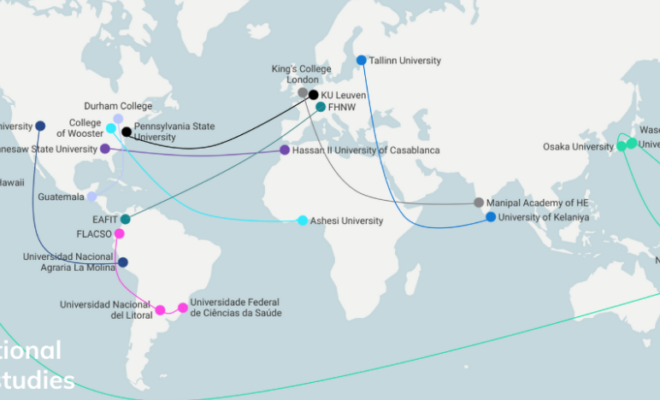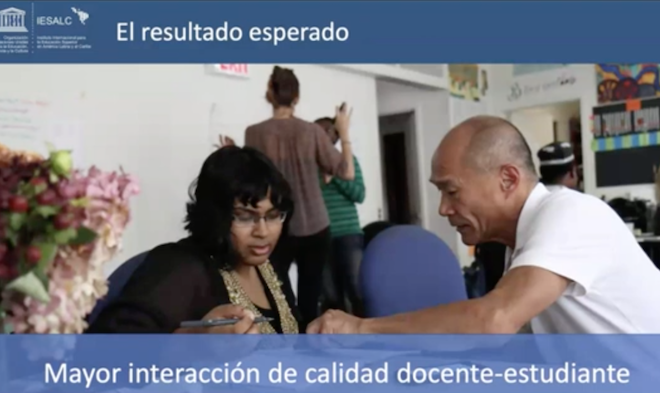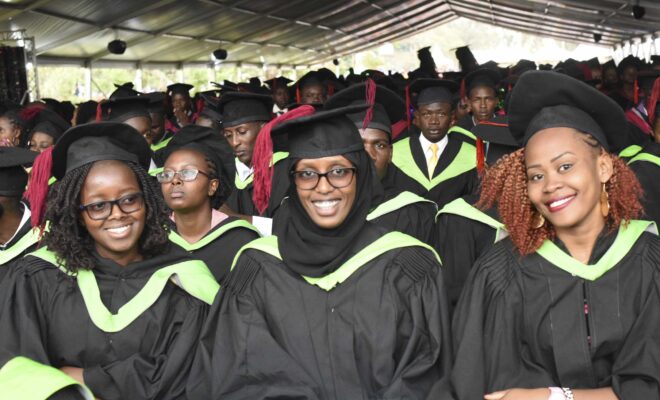Universities contribution to gender equality: a global perspective
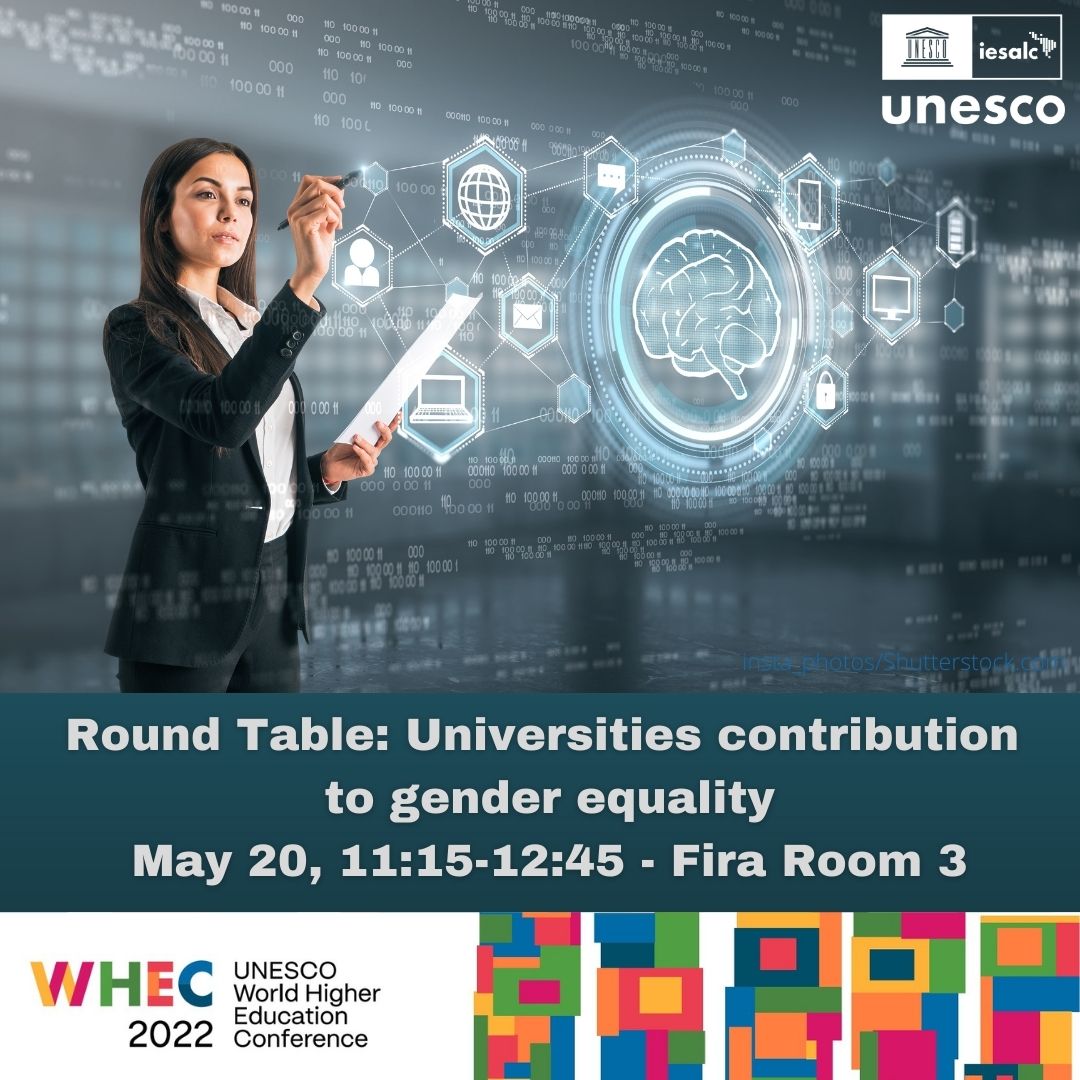
Report presentation: Elizabeth Shepherd, Leader of the Consultancy team – Times Higher Education.
Panelists: Gloria Bonder, UNESCO Chair of Women, Science and Technology and Director of the Department of Gender, Society and Politics of FLACSO, the Latin American Faculty of Social Sciences; Ricardo Villanueva Lomeli, Rector of the Guadalajara University of Guadalajara (Mexico); Swami Amritaswarupananda Puri, President of Amrita University (India).
Moderator: Victoria Galán-Muros, Chief of Research and Analysis – UNESCO IESALC.
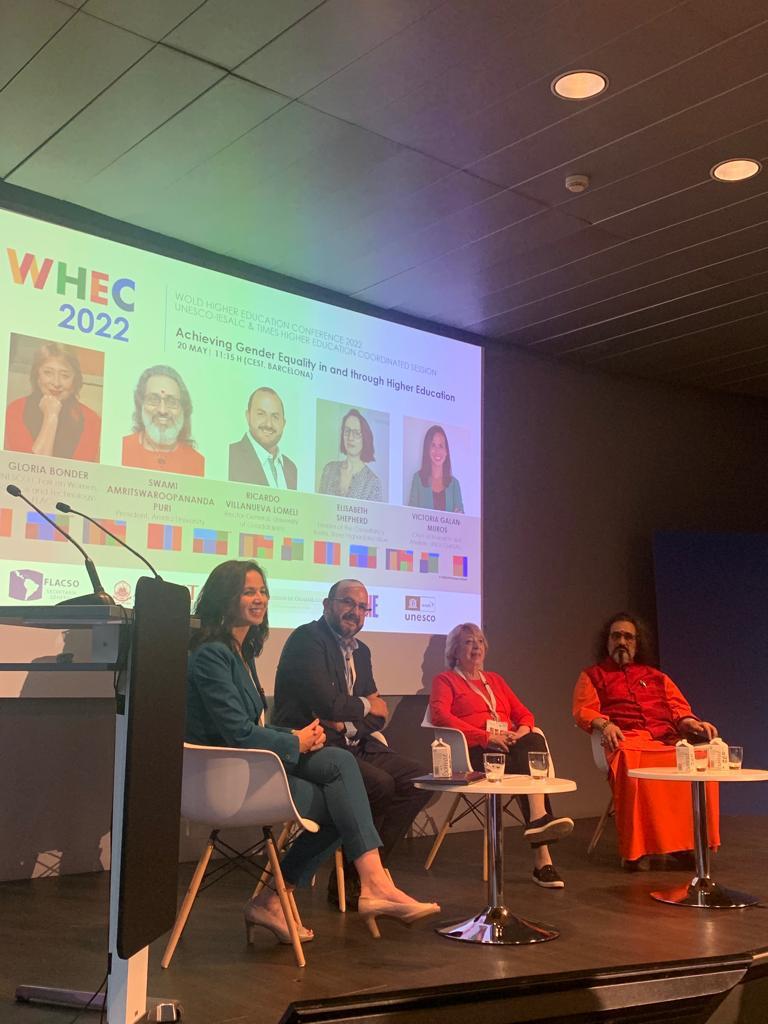
Supporting gender equality in and through education, including higher education, is key to achieving the Sustainable Development Goals 5 (SDG5): gender equality and women’s empowerment. Since the adoption of the Agenda 2030, significant progress has been made to secure women’s access and success in higher education, including better policies, but there is still room for improvement.
Two joint reports by UNESCO International Institute for Higher Education in Latin America and the Caribbean (IESALC) in and The Times Higher Education (THE) aim to shine some light into this topic. Through a literature review, case studies and novel data analysis from hundreds of universities worldwide, evidence is presented on the activities that universities undertake within their teaching, research, engagement and management areas to promote gender equality. This round table saw the official launch of Gender Equality: how universities are performing. Part 2 (THE – IESALC).
This panel brings together a gender expert, and two university leaders to further discuss the opportunities and barriers universities face in the path to achieving gender equality and will explore ways to improve universities’ contribution to SDG 5 in the forthcoming years.
Keypoints
- Gender equality in enrolment figures is improving but is moving in one direction (more female students) rather than towards true equity (improving representation of male students in care-related subjects (education, clinical and health, psychology).
- Improving access is a good first step but active support measures must be taken to ensure student retention, success and continuing representation in higher education (faculty).
- Universities in countries with higher levels of gender equality might think they do not need to implement specific measures, but they often perform worse in terms of female under-representation in STEM subjects and over-representation in “traditionally female” subjects.
- The world is not necessarily moving toward progress, justice and equality.
- Equality of rights and opportunities for all is a formal concept that can lead to the mirage of equality.
- Institutional cultures are slow to change.
- Universities must commit themselves to gender equity and comply with policy instruments as well as really allow gender mainstreaming in the curriculum in all subjects.
- Sometimes formal equality between men and women has been used to disguise the actual inequality of opportunities. That is why we need equity.
- In Spain, 1 out of every 3 students drops out. We have identified data generated by virtual campuses, patterns, and based on this we have developed strategies for incorporating students.
- All change has resistance, and the indicators show the resistance, which shows that we are doing well.
- The most difficult thing is the deconstruction that we are living in universities, if we think we can change the problems that humanity is currently experiencing we have to unlearn, remove the common and ingrained habits that we still have. Gender equality should not be an issue, it should be ingrained.
- To re-educate we have to unlearn, to remove common and ingrained habits; it is a challenge, to understand that we teach, but we also have to learn.
- We continue to have cases of harassment in our classrooms, a very painful process.
- We must go from exclusion to inclusion, from disciplines oriented to holistic learning, from silos to transdisciplinarity, from a terminal approach to a lifelong learning model, from a hierarchical model one size fit all to a flexible and diversity-based model, and from a content-based model to a transformative one.
Related posts
- UNESCO IESALC and Times Higher Education launch report on universities’ contribution to gender equality and women’s empowerment Part 2
- Gender equality: how global universities are performing, part 2 (Times Higher Education)
RELATED ITEMS
